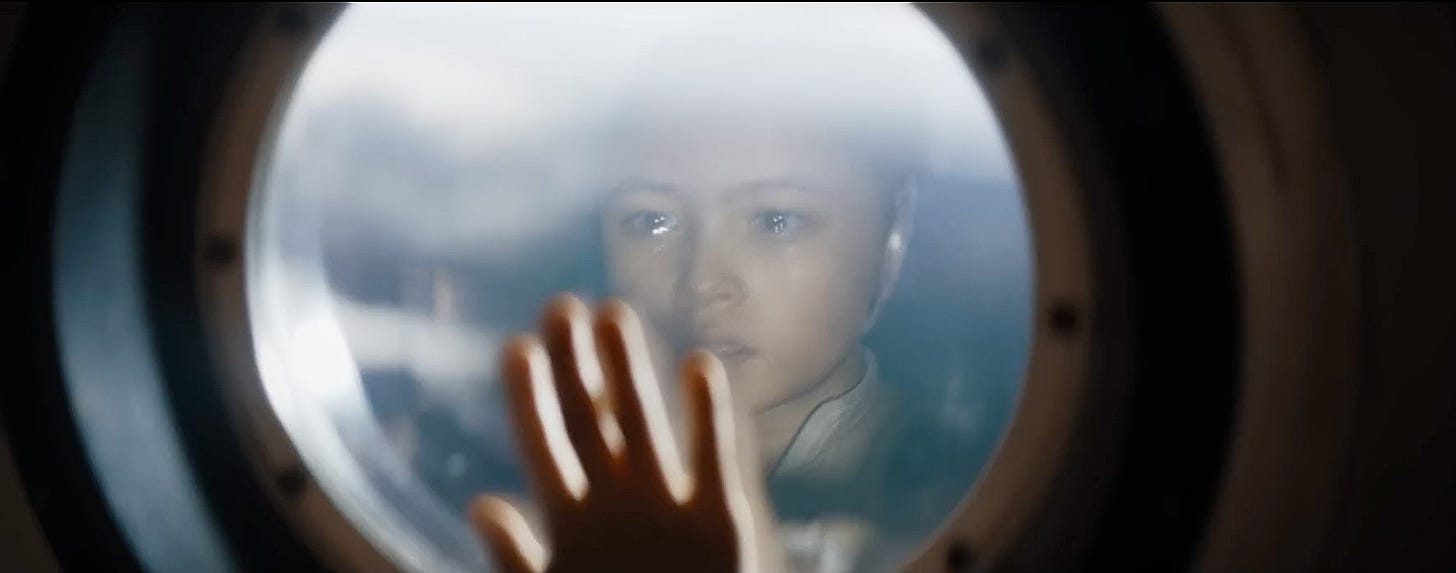The new AI movie The Creator is a must-see for anyone grappling with what it might mean to be human in an AI future
While rooted in a deeply speculative alternative reality, Gareth Edwards' sci-fi tour de force still packs a punch at a time when advanced artificial intelligence is in the spotlight
It seems inevitable that, at a time when the risks and promise of artificial intelligence are being hotly debated, an AI-as-existential-threat blockbuster hits the movie screens. And yet for all it’s sci-fi implausibility, Gareth Edwards’ The Creator is a surprisingly complex and compelling reflection on the challenges of building a positive AI future.
Unlike most apocalyptic AI films — and contrary to the impression given by the trailer — The Creator turns the genre on its head. It’s an anti-Terminator movie that switches roles between people and robots as human aggressors strive to stamp out AIs that are simply looking to be free.
Here, I’ll admit that I enjoyed the film. It’s not perfect by any stretch of the imagination. But the world building’s impressive, the cinematography is stunning, and the narrative is compelling as it turns what starts off as a seemingly black and white story on its head.
Beyond this though, The Creator is a movie about what it means to have dignity and autonomy in age where personhood is no longer tied to biology.
As Alex Godfrey writes in Empire, “Above and beyond all the futurism, this is thoughtful sci-fi, with ethical conundrums and moral mindfucks, a story that asks what it is to be human in a world where robots often have more humanity than people.”
Without giving too much away, the story pivots on a future where humanoid AIs are banned in the U.S. following the detonation of nuclear bomb over Los Angeles. Unlike many movies featuring intelligent robots, the AIs in The Creator are surprisingly human-like in their strength and abilities. In many ways, they’re an extension of Elon Musk’s ambitions to create a human-like “Tesla Bot” that is helpful, but not too capable — lest it becomes a threat.
This ban turns into an all-out war between a militant U.S. and AIs that are living and working with families and communities across what, in the world of the movie, has become “New Asia.”
Not surprisingly, the AIs fight back — setting the scene for what feels at first blush like a Terminator-like showdown. But there’s a twist (one of many). What is claimed to be an AI super-weapon that U.S. military leaders insist threatens to bring about the end of humanity is just a child — albeit an AI child. And the person sent to destroy it is thrown into a moral and emotional conundrum as they realize that the the AI future is far less black and white than they thought.
What The Creator does well is challenge assumptions about the “humanity” of future intelligent machines. We’re already seeing a groundswell of pushback against the notion that machines could ever be anything more than just that — tools with no rights, no autonomy, no dreams or aspirations, and absolutely no entitlement to be treated as anything other than slaves. Yet if what gives us worth as humans transcends our biological “wetware,” there is every possibility that sentient machines will one day become a reality that also have the the right to freedom and autonomy.
We’re still a long way from such a future. Yet as advances in AI continue to challenge our understanding what it means to be conscious and sentient, it’s not too early to start grappling with what living side by side with intelligent and self-aware machines could be like.
And this is where The Creator provides a perspective that is refreshingly different from the Skynet scenario where intelligent machines reflect that all-too-human trait of assuming everything that isn’t like them of controlled by them is a threat to their existence.
In the movie, the U.S. military is the aggressor — supported by a propaganda machine that paints AIs tending fields, looking after children, and living in harmony with communities in New Asia, as a threat to everything that’s good. The AI’s, in contrast, simply want to be free.
There’s a broader narrative here thought that intrigues me. The working title of The Creator when it was in production was “True Love.” And in many ways, this is a film about the nature and power of love.
This may seem a little odd at first blush for a sci-fi movie that revolves around conflict. And yet, at its heart this is a story of how love is central to what it means to be “human” in the broadest sense — irrespective of whether the loved and the lover are biological or mechanical.
When watched through this lens, the movie takes on a new dimension, and reveals aspects of what it means to have worth as a person that transcend the physical systems and substrates someone is made up of.
How relevant this will be as we continue to push the bounds of what is possible with AI, I don’t know. But I am pretty sure that we already need to be thinking seriously about what it means to be human in a future that transcends our biological origins — and The Creator is absolutely a movie that, when watched in the right light, can help catalyze these conversations.




